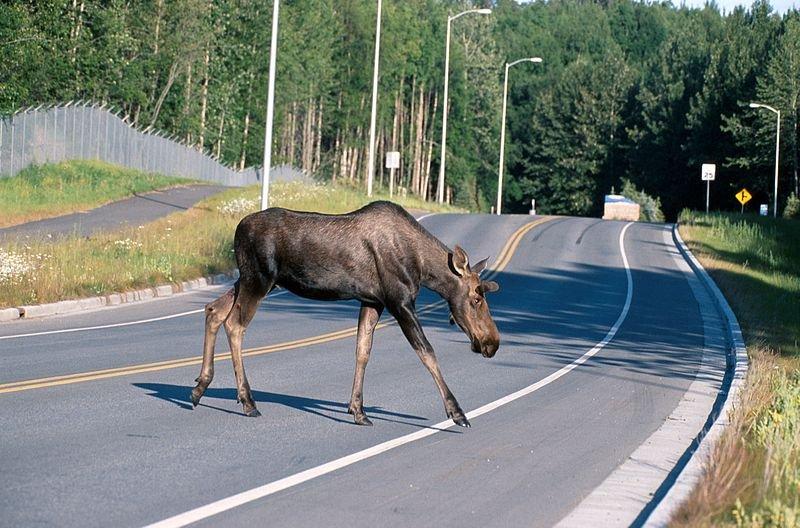Do You Eat Roadkill?

According to this article in the Homer Tribune, when a moose is killed in a collision with a vehicle, volunteers with a moose salvage program retrieve the moose and deliver it to next person in line on a list of applied-and-approved recipients, which include food banks, churches, families with limited financial means, etc. This program prevents perfectly good meat from going to waste. Talk about the next best thing to pizza delivery ...
But, Alaska isn't the only state where you can be put on a roadkill waiting list. In fact, many states provide residents with this opportunity, although I'm not aware of any other states that actually deliver the meat to your door.
When it comes to roadkill cuisine, just about anything is fair game. Deer, rabbits, opossums, raccoons, squirrels, turkeys -- you name it, roadkill connoisseurs have dined on it. I have several friends who won't hesitate to pick up a fresh carcass off the road and prepare it for dinner that night, and while I truly appreciate the waste-not, want-not attitude of these folks, I just can't bring myself to eat roadkill.
I know the logic behind consuming these car-squished critters is sound. The meat is fresh, and if not consumed, it will simply go to waste. But I can't help worry a little about the safety of eating roadkill meat. I did a little research and found that my concerns aren't completely unfounded.
According to this article in Food Safety News, while most fresh roadkill is fine for consumption, there are a few possible risks to consider. When you hunt and kill an animal, you know you are handling the meat in a timely fashion. You can process it when it's still in its prime condition. With roadkill, you don't always know how fresh it is, or if you're harvesting a healthy animal. You don't know if the animal suffered from a debilitating disease, which caused it to wander into traffic or if it had open wounds before getting hit by the vehicle. You also must consider internal damage from impact with the vehicle. Gut spillage from a ruptured bladder or torn intestines could result in bacterial contamination.
But, despite these concerns, there are plenty of people who have experienced no adverse effects from dining on roadkill. In fact, I've read about a few people who eat only meat they find on the side of the road. For both full-time and part-time roadkill consumers, there are a number of roadkill cookbooks to help you make the most of your squished main course. But, before you scoop up that dead deer off the side of the road, remember that state-by-state rules vary on the legality of taking home roadkill.
Have you ever eaten roadkill? If so, what was it and what are your rules for taking home roadkill for dinner? Does your state offer a roadkill waiting list?






